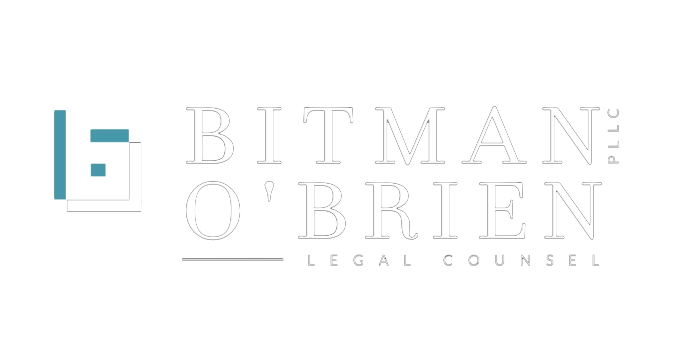What Is a Mechanic’s Lien in Florida?
A mechanic’s lien is a statutory tool available under Florida law that protects the rights of individuals and businesses that furnish labor, services, or materials for the improvement of real property. Sometimes referred to as a “construction lien,” the mechanic’s lien offers recourse to contractors, subcontractors, and material suppliers when payment is withheld for completed work.
In Florida, mechanic’s liens are governed by Chapter 713 of the Florida Statutes. When properly recorded, the lien attaches to the property and may prevent the owner from selling or refinancing the property until the underlying debt is resolved. It effectively serves as a legal interest in the property, ensuring that those who have contributed to its value are not left unpaid.
How Does a Mechanic’s Lien Work?
In Florida, a Construction Lien (i.e., mechanic’s lien) is a legal document containing a sworn statement that a property owner is indebted to a Contractor (a “lienor”). The sworn statement specifically states that a lienor has, pursuant to a contract, worked on or provided materials for a property and is owed all or some of the money pursuant to said contract. In Florida, construction liens can arise out of either a verbal or written contract.
Under Florida law, construction liens must be properly drafted, perfected, and timely enforced to remain valid and effective. Section 713.08, Florida Statutes, contains a form (i.e. template) that can be used in drafting a claim of lien that ensures all required information is included. To perfect the lien, the lienor must comply with the applicable notice provisions and must record the Claim of Lien in the official records (sometimes called the Public Records) of the county where the property is located within 90 days of the “final furnishing” of labor, materials, or the like. Once recorded, the lien encumbers the property, giving the lienor the right to file a lawsuit to foreclose the lien, and to recover the principal balance of the lien, judgment interest, attorney’s fees, and costs from the proceeds of a judicial sale of the property.
Who Can File a Mechanic’s Lien in Florida?
Florida law provides lien rights to a range of parties, including:
- Contractors
- Subcontractors
- Sub-sub Contractors
- Material suppliers
- Laborers
- Equipment rental companies
- Certain professional service providers (such as architects and engineers)
Generally, these parties must have furnished labor or materials that permanently improved the property. It’s important to note that liens cannot be filed against government-owned property.
Filing Requirements and Deadlines
The filing process under Florida law involves several strict steps and deadlines. The following are key procedural requirements:
Notice to Owner (NTO):
If you do not have a direct contract with the property owner, you must serve a Notice to Owner within 45 days of first providing labor or materials. This notice must be properly served in order to preserve your right to pursue a claim.
Claim of Lien:
You must record the Claim of Lien with the Clerk of Court in the county where the property is located. This must be completed within 90 days of the last day you provided labor, services, or materials.
Serve a Copy of the Lien:
A copy of the recorded lien must be served on the property owner within 15 days of recording.
Contractor’s Final Payment Affidavit:
If you have a direct contract with the property owner, you must serve a Contractor’s Final Payment Affidavit on the property owner at least five (5) days before filing a lawsuit to foreclose on the lien.
Lien Enforcement:
If the debt remains unpaid, legal action to enforce your rights must be initiated within one year of recording. That period may be shortened if the property owner files a Notice of Contest or if the property owner brings an action to show cause pursuant to Section 713.21(4), Florida Statutes.
Failure to meet any of these requirements may result in the lien being considered invalid and unenforceable.
What Happens When a Mechanic’s Lien Is Filed?
Once recorded, a mechanic’s lien attaches to the property and becomes part of its title history. This can have serious consequences for the property owner, as it may block a sale or refinancing until the issue is resolved.
In many cases, the existence of the lien itself prompts the owner to resolve the dispute through payment or negotiation. However, if the lien is contested or ignored, the claimant must proceed with legal action in order to enforce the lien.
Contact Bitman Law for Legal Guidance
Florida law governing mechanic’s liens is highly technical, and even minor procedural errors can jeopardize your ability to secure payment. If you believe you have a valid claim or have questions about your rights, seeking experienced legal counsel is strongly recommended.
Bitman Law is a top-rated Florida law firm with experience representing contractors, subcontractors, suppliers, and property owners in lien-related matters. We offer free case reviews and provide practical, informed legal support to help you protect your financial interests.
Disclaimer: This post is for general informational purposes only and does not constitute legal advice. Florida’s construction lien laws are complex and governed by strict deadlines. Failure to act in a timely manner can result in the loss of valuable legal rights. Do not rely on this summary as a substitute for individualized legal counsel. If you are involved in a construction project and have questions about your lien rights or obligations, it is critical that you consult with a qualified attorney without delay. Waiting to seek legal advice could lead to missed deadlines and the forfeiture of your ability to enforce a lien.

